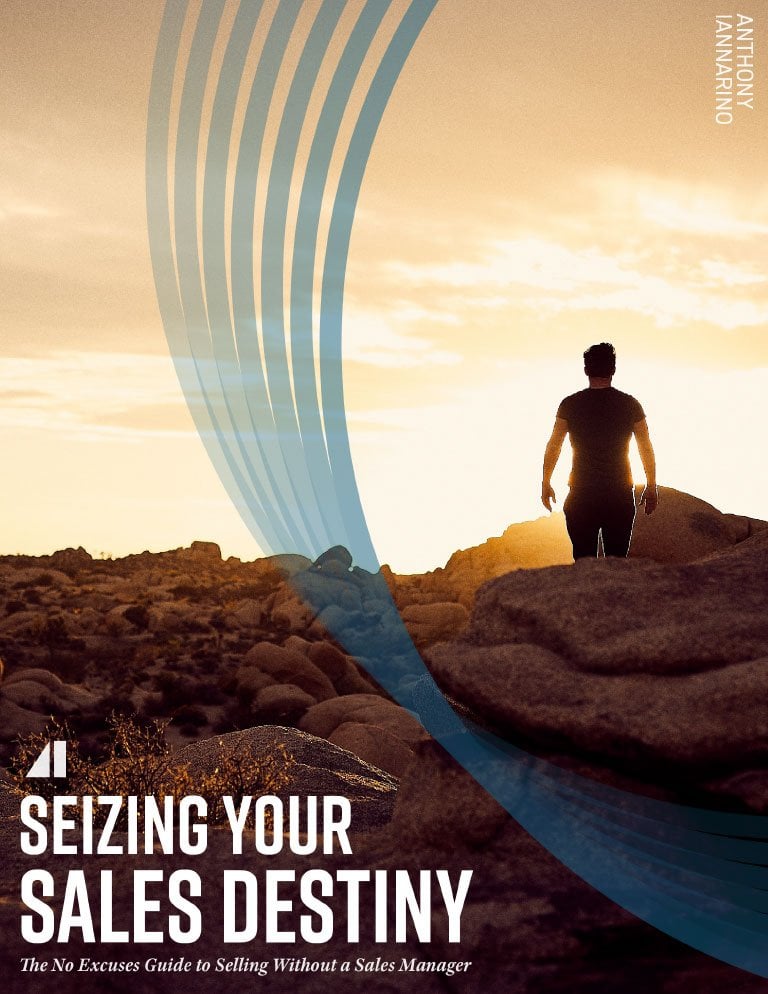What follows is a riff on Dave Brock’s recent posts on failing and succeeding.
If you are innovating, it may make sense to fail often. But if your job is to win big deals, or something like that, there isn’t an upside to failing often. You are going to fail. When you do, it will not be your identity. Instead, it will be feedback that offers you some insight, if you are willing to look for it. There are two ways you can learn what you need to know to improve your success and improve your results. While both are important, one is faster and more certain.
Lessons Learned
As you pursue your goals, results, and perhaps, your dreams, you will sometimes fail. Failure is a part of success, not something separate from it. You will have to search far and wide to find a person who has not failed while trying to do otherwise. Anyone who suggests otherwise is dishonest and should be avoided.
This in no way suggests that you should try to fail, nor does it mean that you shouldn’t do everything in your power not to fail. You should not believe that failing due to your gross negligence, sloppiness, or outright lack of caring is something positive, even if you derived some lesson from it, a lesson that wouldn’t have been necessary if you had done good work.
Because you are going to fail, it is important that you learn something from the failure that will allow you to avoid repeating the mistakes that caused you to fail in the first place. It is, however, impossible to learn from a failure if you are going to absolve yourself of responsibility.
What Did You Learn?
The way to convert a failure into a lesson is to review what you did—or didn’t do—that caused the failure. You cannot learn something if you blame someone or something for your lack of success.
Laying the blame for losing a big deal at the feet of the contact that didn’t recognize the tremendous value of your solution or didn’t properly weigh all the factors you believe differentiated you from your competitor is to have learned nothing. More still, it indicates you should expect to experience this failure again, and not too long in the future.
Whether you blame your client, your pricing, your company’s offering, or any other external factor, you miss the opportunity to adjust your approach to improve your future outcomes. The only way to benefit from failure is to learn from it by recognizing what you might do to change the outcomes in the future. Your greatest failure in this case, is your failure to take responsibility for failing, a lesson that will be repeated until it is observed.
- What caused the failure?
- What can you do differently in the future that might lead to success?
- What are the circumstances or fact patterns that will allow you to recognize when one approach is better than some other potential course of action?
Learning from the Lessons of Others
How you learn is as important as what you learn.
One of the best ways to learn the lessons without actually having to suffer the failure yourself, is to learn from other people’s failures—and successes. Thankfully, you don’t have to learn every lesson the hard way, even though many of the lessons that take seem to come from painful missteps and mistakes. Instead, you can learn from people who experienced those painful failures.
Jim Rohn said, “Success leaves clues.” Failure also leaves clues, many of which are known, written in books, magazines, and websites. The lessons learned are documented for anyone who is wise enough to look backwards for lessons, instead of the sort of neophilia that causes one to believe anything new and novel is superior to what has come before.
Reducing the incidence of failing without learning the hard way means looking to the lessons of people who have already failed and discovered how to succeed. Instead of having to try to discover some strategy or approach that might work, you can look to what others have already discovered. Regardless of your challenge, if you know the outcome you want, it’s likely because you have already seen someone else produce it. If someone else has already achieved what you want, the strategies to succeed are already known.
Gross Negligence
If what you call a success is already well-known, extremely well-documented, and easily available, it is gross negligence not to study what is known as your best path to success, limiting the likelihood of failing in the many ways that others have already failed in the past.
When it is your craft or chosen profession that offers the opportunity to succeed or fail, and when, as Brock suggests, failures come with consequences, there is no reason not to look first to what is already known—instead of repeating the mistakes of others for yourself, spending time and effort learning for yourself—and harming yourself, your company, and your clients in the process.
Of the two ways you can learn from failure, one is better than the other.

Get the Free eBook!
Learn how to sell without a sales manager. Download my free eBook!
You need to make sales. You need help now. We’ve got you covered. This eBook will help you Seize Your Sales Destiny, with or without a manager.
Download Now










